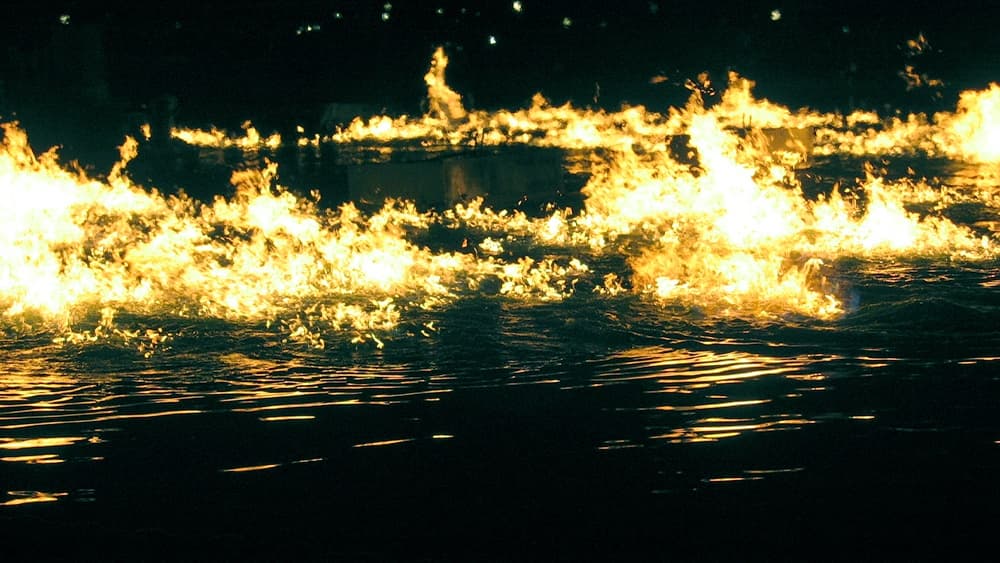In July 2021, the world witnessed an extraordinary event that seemed more like a scene from a science fiction movie: a fire engulfing the surface of the Gulf of Mexico. This incident not only captured global attention but also raised significant concerns among environmentalists, scientists, and the general populace regarding the safety and environmental impacts of offshore oil operations.
The 2021 Gulf of Mexico Fire
The incident occurred over the weekend of July 4th, 2021, when a 12-inch pipeline, operated by the state-owned company Pemex, ruptured beneath the Campeche Sound. This breach allowed natural gas to leak into the ocean, resulting in a massive inferno that resembled a “ring of fire” or molten lava in the middle of the sea.
Pemex’s flagship oil platform, Ku Maloob Zap, situated nearby, was not damaged, and the company took swift action to halt the spread of the fire by shutting down adjacent pipelines.
Extinguishing the Blaze
Pemex reported that the fire was successfully extinguished within five hours using nitrogen, an unconventional but effective method for smothering fires by displacing oxygen. This rapid response was facilitated by the ready availability of equipment, workers, and nitrogen gas, preventing the situation from escalating and safeguarding the health of those nearby.
The Feasibility of Oceanic Fires
The Gulf of Mexico fire provided a stark answer to the theoretical question of whether the ocean can catch on fire. The blaze was attributed to the ignition of methane and other hydrocarbons, which had leaked from the damaged pipeline. According to experts, such a fire requires a significant concentration of natural gas at the surface, a rare occurrence. The fire, paradoxically, may have mitigated some of the environmental damage by consuming part of the leaked hydrocarbons.
Environmental Repercussions
While ocean fires are exceedingly rare, the Gulf of Mexico event underscores the potential environmental hazards associated with offshore drilling and fossil fuel dependency. Initial assessments suggested that while larger marine life avoided the area, plankton and smaller organisms likely perished in the flames. The incident has reignited discussions on pollution, marine ecosystem disruption, and the pressing need to reduce reliance on fossil fuels.
Comparative Analysis: Traditional vs. Modern Response to Oceanic Fires
To offer a clearer understanding of advancements in handling oceanic fires, the table below compares traditional and modern response strategies, as exemplified by the rapid containment of the 2021 Gulf of Mexico fire.
| Criteria | Traditional Response | Modern Response |
|---|---|---|
| Techniques | Primarily reliant on water and foam extinguishers | Use of nitrogen to displace oxygen and smother flames |
| Speed | Extended response times due to logistical challenges | Rapid deployment of resources and personnel |
| Environmental Impact | Potential for extensive ecological damage | Reduced impact through faster containment and less harmful methods |
| Safety | Higher risk to personnel due to prolonged exposure | Enhanced safety through quick action and innovative techniques |
| Effectiveness | Often limited by environmental conditions | Improved by technological advancements and strategic planning |
Key Considerations in Ocean Fire Management
- Rapid Response: Modern techniques enable quicker containment, significantly reducing potential harm to marine ecosystems and human health;
- Innovative Methods: Utilizing substances like nitrogen, which efficiently extinguishes fires without introducing pollutants, marks a significant advancement;
- Environmental Preservation: Modern responses prioritize minimizing ecological disruption, aiming for a balance between fire suppression and conservation;
- Safety Protocols: Enhanced safety measures for response teams, including the use of specialized equipment and training, are vital in modern strategies;
- Continuous Improvement: Ongoing research and development into fire suppression technologies and strategies are crucial for improving future responses to oceanic fires.
Video Guide
To answer all your questions, we have prepared a video for you. Enjoy watching it!
Conclusion
The Gulf of Mexico fire in July 2021 stands as a vivid reminder of the complexities and dangers inherent in offshore oil extraction. As investigations continue to assess the full extent of its environmental impact, the event catalyzes a broader dialogue on sustainable energy practices and the stewardship of our planet’s oceans.
The incident not only challenges the oil industry to enhance safety measures but also calls for a collective reevaluation of global energy strategies to prevent future catastrophes.



